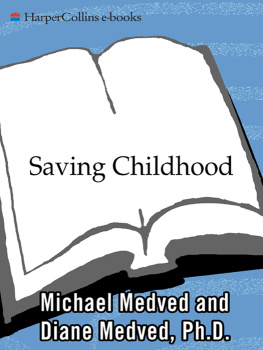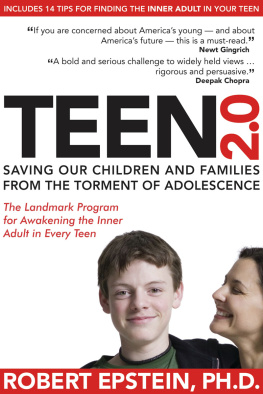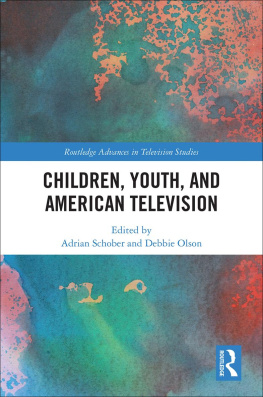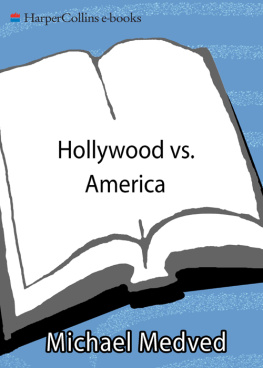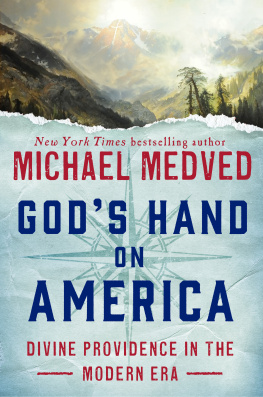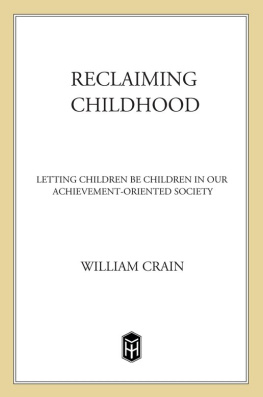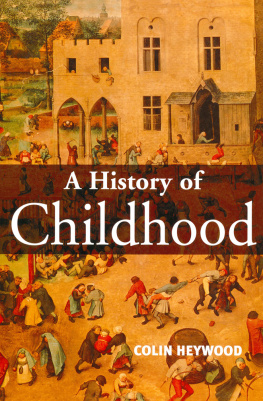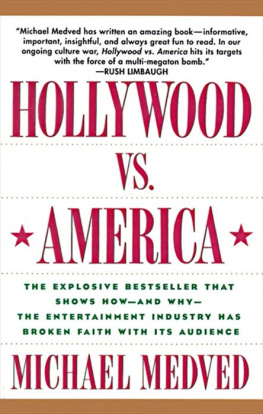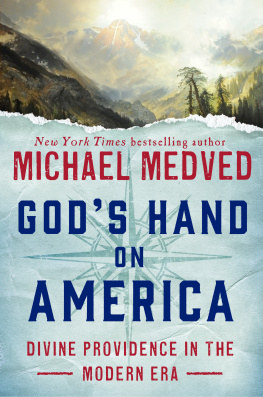For our children, Sarah, Shayna, and Danny
who allow their adoring parents to share the joy and significance of childhood innocence
In the sun that is young once only,
Time let me play and be
Golden in the mercy of his means
it was all
Shining, it was Adam and maiden,
The sky gathered again
And the sun grew round that very day.
So it must have been after the birth of the simple light
In the first, spinning place
And nothing I cared, at my sky blue trades, that time allows
In all his tuneful turning so few and such morning songs
Before the children green and golden
Follow him out of grace
D YLAN T HOMAS , F ERN H ILL
The world is so full of a number of things,
Im sure we should all be as happy as kings.
R OBERT L OUIS S TEVENSON , A C HILDS G ARDEN OF V ERSES
Contents
When we began collaborating on this project two years ago, a number of worried acquaintances warned us of potentially dire consequences to our relationship. Marriage involves enough daily stresses and strains, they argued, without husband and wife making a foolhardy effort to balance their contributions and define their roles as coauthors of a demanding book. Yes, wed written eleven previous titles combined, and respectfully reviewed one anothers manuscripts, but wed never before shared formal responsibilities as we did here. As it turned out, the process proved unexpectedly pleasurable, and caused no discernible damage to our marriage. In fact, we conclude with only intensified mutual respect and affection. This happy surprise is due in no small part to the friends and associates who help us in all aspects of our complicated lives.
Our grateful association with our literary agents, the father-and-son team of Arthur and Richard Pine, spans more than two decades. Michael recommended Richard as an agent to Diane as part of our first conversation, within minutes of meeting. We have also enjoyed productive partnerships with our insightful editors, Hugh Van Dusen at HarperCollins (whos worked on two Medved projects) and John Sloan at Zondervan (whos handled three). Our lifelong friends Denise and Judd Magilnick of Santa Monica provided crucial research and helpful suggestions, as did our honored associate Lissa Roche of Hillsdale College. David Altschuler offered advice and encouragement, computer whiz Robert Brownell interrupted his triumphal progress at Microsoft selflessly to solve mind-numbing problems at all hours of the night, while Michaels crack radio show producers Jeremy Steiner and Dan Sytman provided the daily support that allows such literary and other efforts to flourish. Judith Wachs, together with Deb and Dale Leyde, proved such splendid friends and such a generous blessing to our kids that those children happily survived their parents occasional distraction. Our neighbors Rabbi Daniel and Rebbetzin Susan Lapin (and their seven children) taught by example and, along with Yarden Weidenfeld of Toward Tradition, shared too many mutual challenges to be specifically enumerated.
Our families offered unflagging support, particularly our parents Stanley and Genevieve Edwards of Westlake Village, California, Renate Medved of Los Angeles, and David and Yael Medved of Jerusalem. Michaels brother (and prior coauthor) Harry Medved has always been indispensable to all our endeavorshe even lived with us during the first four years of our marriage. Our children (who ultimately displaced him), Sarah, Shayna, and Danny, though not overlooking the irony that their parents devoted so much attention to other peoples childhoods, nonetheless provided the impetus for this project and continue as the light of our lives. We also must thank the wonderful staff of the King County Library System Answer line, ever-available and ever-helpful.
Finally, it is with great affection and enormous gratitude that we acknowledge the invaluable, efficient, and consistently cheerful support of our brilliant and absolutely irreplaceable administrative assistant, Alexis Prida. With her dedicated and exhaustive efforts she makes our work possible. She is a daily blessing to the Medved family and, indeed, to everyone fortunate enough to encounter her.
Diane and Michael Medved
To Frighten and Corrupt
In every corner of contemporary culture, childhood innocence is under assault. The very idea of parental protectiveness has been overwhelmed by relentless pressure from a society that seems determined to expose its young to every perversion and peril in an effort to prepare them for a harsh, dangerous future.
From the bleakest ghettos to the most privileged suburbs, families face the same fears. We worry not only about what might happen to our kids on the way to school, but about what values they will learn once they get there. Were concerned not only with the threat of physical assault, but with the emotional and moral battering that our children endure from peers and the media. In short, we feel powerless to counteract the implacable social forces that push our own flesh and blood to grow up too soonand too cynical. We may shower youngsters with every sort of material blessing and glitzy diversion, but we cant seem to give them the greatest gift of alla secure, optimistic, and reasonably sheltered childhood.
Nihilistic messages that frighten and corrupt now come at our kids from so many directions at once that childhood innocence barely stands a chance. Consider:
In Philadelphia, a four-year-old keeps squirming away when embraced by a favorite uncle whod come for his weekly visit. When asked by her puzzled relative whats wrong, she tells him that her nursery school teacher warned her against any adults who touch her too hard. If he persists in squeezing her, she tearfully informs him, shell have to call the police.
In New York City, a ten-year-old kisses his parents good-bye in the morning and goes off to his exclusive (and outrageously expensive) private school. When he comes home that evening following some after-school adventures with his best friends, he proudly displays a small silver ring inserted into his newly pierced nose.
In Dallas, a three-year-old returns from play group to regale his disbelieving parents with an earnest, straight-faced singing and dancing rendition of Mamas Got a Great Big Butt.
In Salt Lake City, a first grader begins compulsively throwing away her previously cherished dolls, much to the horror of her parents. It takes several hours to get an explanation: her teacher showed the class that the world was so badand so crowdedthat nobody should have children. The sensitive and solemn little girl didnt even want to pretend to raise babies of her own.
In suburban Kansas, the local school board abruptly terminates an elderly and popular crossing guard whos worked without complaint at the same intersection for nearly twenty years. A few suspicious parents had expressed their worries about his affectionate attitude, and occasional hugs, to his favorite children. The officials can hardly risk the threat of scandal or a law-suit.
And in our own home, in the winter of 94, our younger daughter, Shayna, joins her excited kindergarten classmates for an after-school field trip to the botanical gardens. As these neatly uniformed parochial school kids squeal and giggle in the backseat of a van, the adults listen to the hourly news on the radiowhich includes a graphic description of Lorena Bobbitt cutting off her husbands penis and throwing it out the window of her car. Hearing this, our daughter covers her ears in horror and begins sobbing uncontrollably, soon joined by two of her frightened classmates.
Admittedly, these anecdotes represent relatively minor upsets in a world scarred by youth violence, widespread substance abuse, teen pregnancy, and adolescent suicide. Nevertheless, such small examples illustrate the depthand breadthof the problem: today, even the most conscientious and protective parents feel helpless when it comes to shielding the innocence of their children. Moreover, this careless cultural assault on the innocence of small children can be directly connected to the development of more dangerous behavior in maturing adolescents. An abundance of evidence suggests that one of the reasons todays teenagers are more frequently troubled and tormented than young people of previous generations is that their parents, teachers, peersand even the shapers of popular cultureadopted a novel and radical approach to child-rearing in their earliest years.

